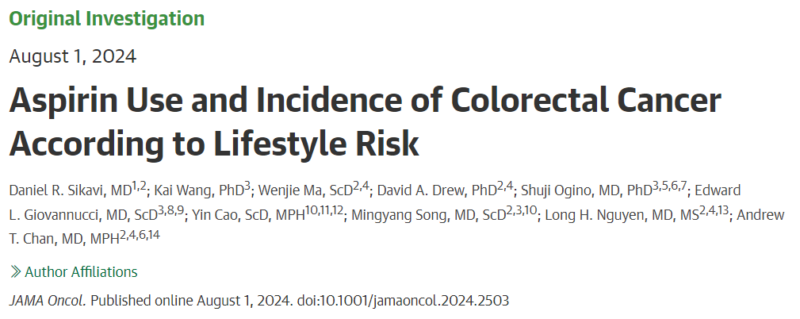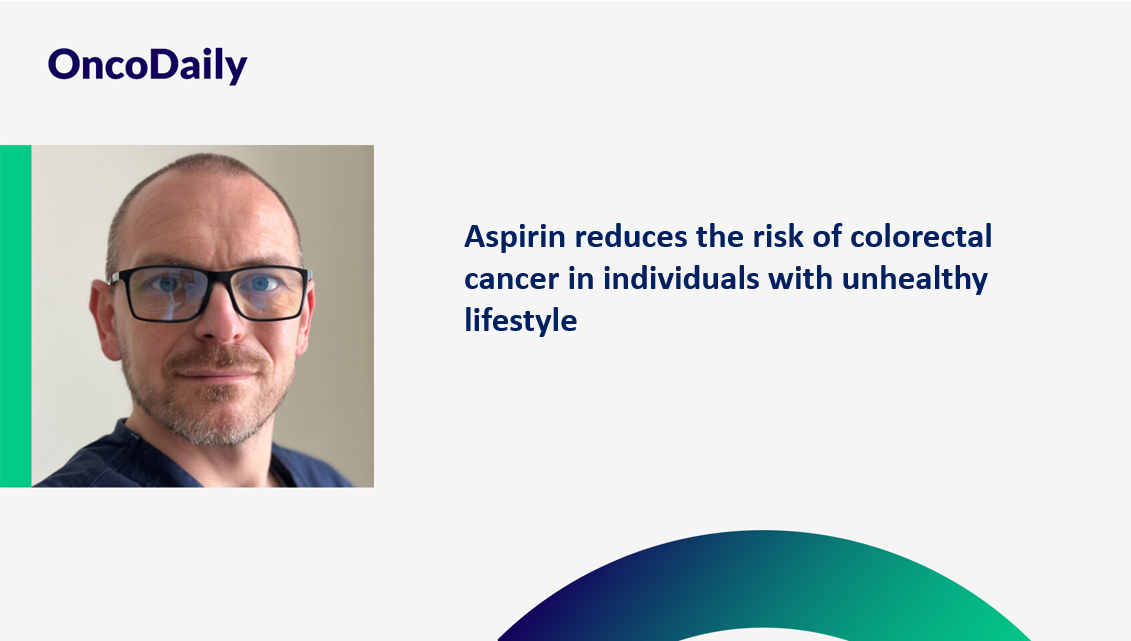Piotr Wysocki shared on LinkedIn:
“A study published in JAMA Oncology investigated the association between aspirin use and colorectal cancer (CRC) incidence among individuals with varying lifestyle risk factors. Dr. Daniel R. Sikavi and colleagues conducted the research, which involved 107,655 participants from the Nurses’ Health Study and the Health Professionals Follow-Up Study, who were monitored over more than three decades.
The study focused on determining whether aspirin use was linked to a reduced risk of CRC across different lifestyle factors, including body mass index (BMI), alcohol intake, physical activity, diet, and smoking. Participants were given a lifestyle score ranging from 0 to 5, with higher scores indicating a healthier lifestyle.
Key findings include:
1. Overall CRC Risk Reduction:
Regular aspirin users (defined as taking two or more standard tablets per week) had a lower 10-year cumulative incidence of CRC (1.98%) compared to nonregular users (2.95%). This corresponded to an absolute risk reduction (ARR) of 0.97% and a number needed to treat (NNT) of 103.
2. Impact of Lifestyle Factors:
The ARR for CRC was more significant among those with unhealthier lifestyles. For participants with the lowest lifestyle scores (0 to 1), the 10-year ARR was 1.28% (NNT = 78). For those with the highest scores (4 to 5), the ARR was only 0.11% (NNT = 909).
3. Long-term CRC Risk Reduction:
Over a 20-year period, the cumulative incidence of CRC was 4.05% among regular aspirin users compared to 5.56% among nonregular users, resulting in an ARR of 1.51% and an NNT of 66.
Similar to the 10-year results, the 20-year ARR decreased with higher lifestyle scores, from 1.39% (NNT = 72) for the lowest scores to 0.04% (NNT = 2500) for the highest scores.
4. Individual Lifestyle Components:
Greater reductions in CRC risk were observed among participants with higher BMI, greater smoking, higher alcohol intake, less physical activity, and poorer diet quality.
The study concluded that aspirin use is associated with a greater absolute reduction in CRC risk among individuals with less healthy lifestyles. These findings suggest that lifestyle risk factors may help identify individuals who could benefit more from aspirin use for cancer prevention.”
Aspirin Use and Incidence of Colorectal Cancer According to Lifestyle Risk
Authors: Daniel R. Sikavi, Kai Wang, Wenjie Ma, David A. Drew, Shuji Ogino, Edward L. Giovannucci, Yin Cao, Mingyang Song, Long H. Nguyen and Andrew T. Chan.

Source: Piotr Wysocki/LinkedIn
About Piotr Wysocki
Piotr Wysocki leads the Clinical Oncology Department at University Hospital and the Faculty of Oncology at Jagiellonian University-Medical College in Krakow, Poland. As an advisor to the Polish Ministry of Health, he shapes the national cancer strategy.
His clinical expertise spans the systemic treatment of breast, gynecologic, and genitourinary cancers, with a focus on developing innovative metronomic chemotherapy-based therapies for advanced cancer patients who have undergone prior treatment.
Read other posts by Piotr Wysocki published on OncoDaily.


